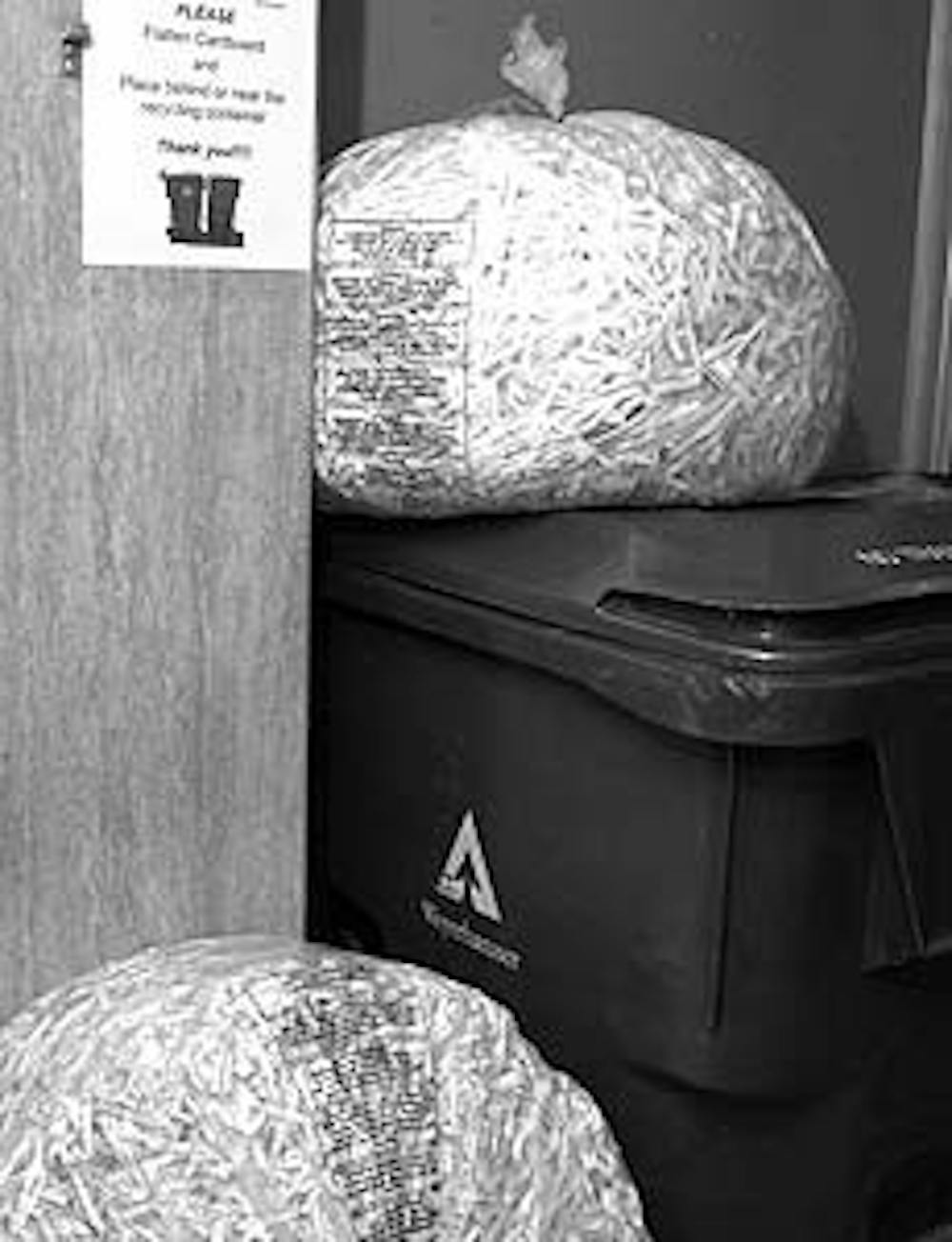ASU Recycling will no longer pick up and dispose of sensitive documents for campus departments.
Since the program began, the organization accepted quasi-confidential documents like exam answer grids with student ID numbers and sensitive course examinations. The decision to discontinue the service became effective June 30 and was meant to cut costs to an already-strained recycling budget.
ASU Recycling has been granted with the same budget to work with since 1991, $96,000 a year.
But with the growing number of buildings to collect from and an increasing work load, the annual budget stretched too thin to accommodate the demand for the program, said Kerry Suson, ASU Recycling's program coordinator.
In the end, Suson said there was no other option but to discontinue the free service.
"It was just too expensive," he said. "ASU kept opening new buildings, and we can't keep up."
Suson calculated that disposing confidential records cost ASU Recycling from $100 to $200 a week with labor, processing and equipment costs. Altogether, he said the program cost about $7,000 to $8,000 a year to sustain.
The increasing amount of loads from certain departments didn't help, he said.
Suson said when the program began he might get a couple boxes a week to dispose. Toward the end, Suson began receiving about 200 boxes, from new buildings and departments opening up and from careless recyclers who often included items that didn't qualify as sensitive documents.
"Departments were getting lazy, and non-sensitive items like brochures and class handouts were included in the boxes," Suson said. "We started to get junk, and we were obligated to pick it up."
Labor costs also make up a big portion of the recycling budget with all-paid staff. Suson said when the Board of Regents cancelled the community service requirement for out-of-state scholarship recipients the decision really impacted ASU Recycling.
"Our volunteer core has disappeared," Suson said.
At the end of 2001 to early 2002, the Academic Senate passed a resolution for changes to ASU Recycling, including proposals for improvement and suggesting a possible increase in budget.
The Senate resolution on recycling stated "ASU's campus-wide recycling program has not appreciably expanded since its formation in 1991" and subsequently resolved that "the Academic Senate encourages leaders of the university to step up ASU's current recycling programs to consider expanded recycling measures."
But Duane Roen, Academic Senate President, said the resolution is just "strong encouragement" for something to be done about recycling services.
"The Senate encourages action to occur, but action will ultimately have to be taken by the university administration," Roen said.
At the administrative level, John Riley, director of Purchasing and Business Services, said the Senate resolution didn't have any impact as far as he could tell. He said he also doesn't foresee an increase in ASU's recycling budget any time soon.
"If the Academic Senate and the Student Government were to come together and approach the University administration, show support for funding (recycling), then maybe something could happen," Riley said.
Suson said he still hasn't given up hope of a possible funding increase in the future.
"Fifty to $100,000 a year increase would be ideal," Suson said. "With that, I'd go hire more drivers, put more bins around campus, go forward with new ideas."
But for now, Suson said he would take any increase he could get.
In the meantime, he encouraged individual departments to find an outside company to dispose of the sensitive documents for a fee. Suson said he was confident the documents would still be properly discarded, whether through a shredder or a private company.
"Everybody I know of has gone to find an outside vendor or shred (sensitive documents) on their own," Suson said. "I'm sure everything will be disposed of properly."
Reach the reporter at lily.yan@asu.edu.




